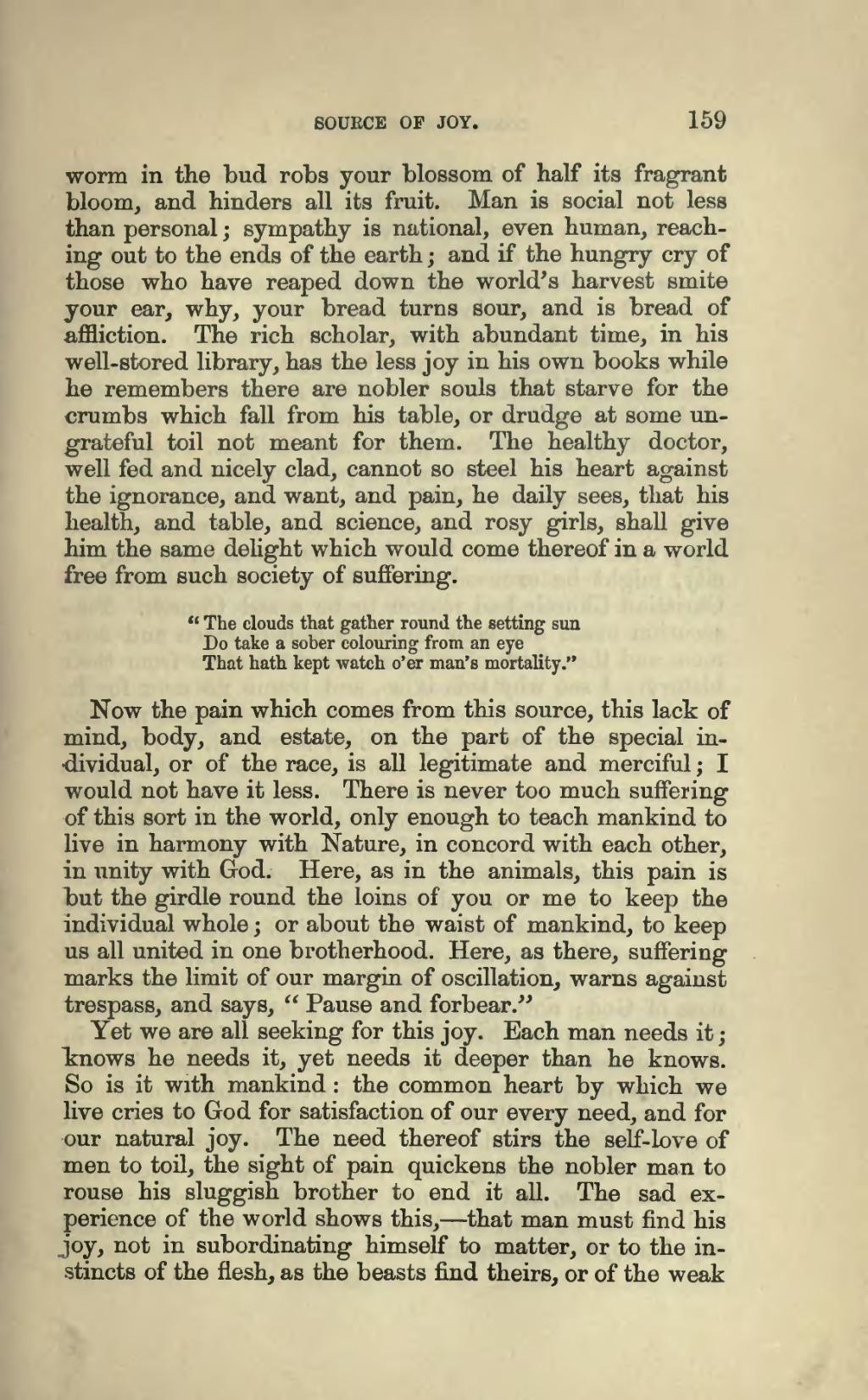worm in the bud robs your blossom of half its fragrant
bloom, and hinders all its fruit. Man is social not less
than personal; sympathy is national, even human, reaching out to the ends of the earth; and if the hungry cry of
those who have reaped down the world's harvest smite your ear, why, your bread turns sour, and is bread of affliction. The rich scholar, with abundant time, in his
well-stored library, has the less joy in his own books while he remembers there are nobler souls that starve for the crumbs which fall from his table, or drudge at some ungrateful toil not meant for them. The healthy doctor,
well fed and nicely clad, cannot so steel his heart against the ignorance, and want, and pain, he daily sees, that his health, and table, and science, and rosy girls, shall give him the same delight which would come thereof in a world free from such society of suffering.
"The clouds that gather round the setting sun
Do take a sober colouring from an eye
That hath, kept watch o'er man's mortality."
Now the pain which comes from this source, this lack of mind, body, and estate, on the part of the special individual, or of the race, is all legitimate and merciful; I would not have it less. There is never too much suffering of this sort in the world, only enough to teach mankind to live in harmony with Nature, in concord with each other, in unity with God. Here, as in the animals, this pain is but the girdle round the loins of you or me to keep the individual whole; or about the waist of mankind, to keep us all united in one brotherhood. Here, as there, suffering marks the limit of our margin of oscillation, warns against trespass, and says, "Pause and forbear."
Yet we are all seeking for this joy. Each man needs it; knows he needs it, yet needs it deeper than he knows. So is it with mankind: the common heart by which we live cries to God for satisfaction of our every need, and for our natural joy. The need thereof stirs the self-love of men to toil, the sight of pain quickens the nobler man to rouse his sluggish brother to end it all. The sad experience of the world shows this,—that man must find his joy, not in subordinating himself to matter, or to the instincts of the flesh, as the beasts find theirs, or of the weak
